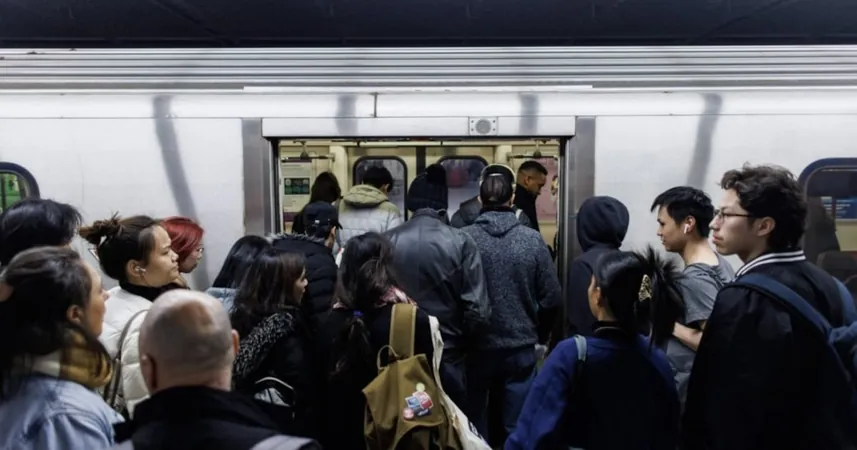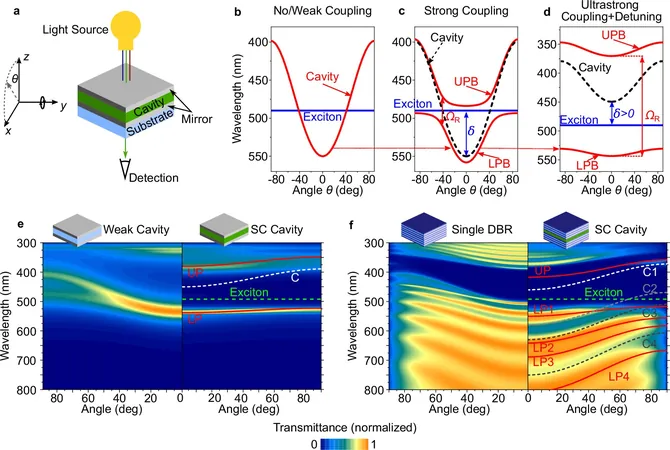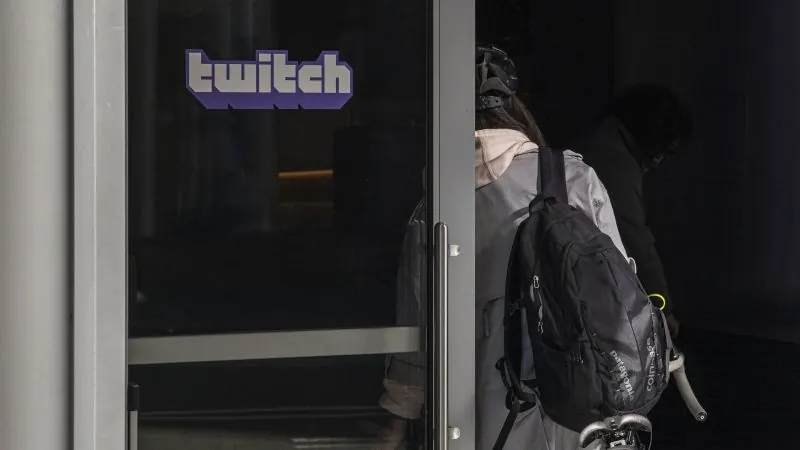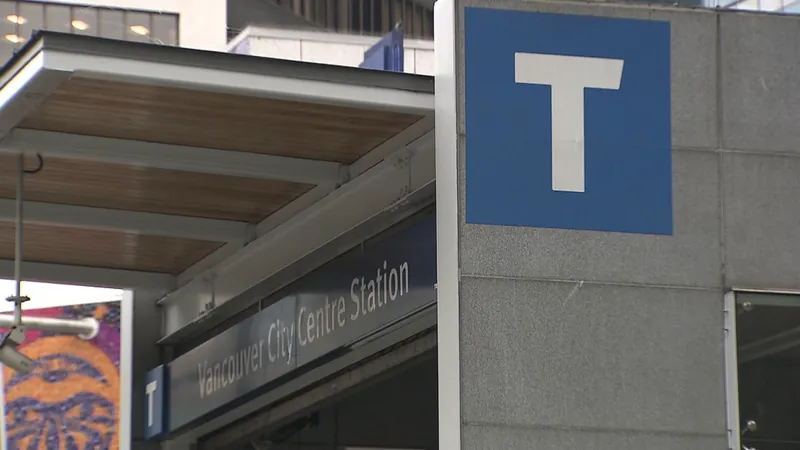
Shocking Revelation: Torontonians Will Spend Over a Year of Their Lives on Public Transit!
2024-12-10
Author: Emma
Overview of Commuting Time in Toronto
A new report has unveiled that Torontonians who commute to work daily are projected to spend a staggering one year and seven months of their lives on public transit. This shocking statistic comes from Moovit, a popular public transit app that analyzed data from millions of journeys across 50 cities worldwide.
Average Commute Duration
According to the 2024 Global Public Transport Report, the average one-way commute time in Toronto is approximately 55 minutes. While this places Toronto behind Vancouver, which has the longest average commute time in North America at 60 minutes, it still highlights significant transit challenges for city dwellers. Miami follows closely with an average commute time of 52 minutes.
Calculating Lifetime Commuting Hours
To arrive at the striking conclusion about lifetime commuting hours, Moovit calculated by doubling the average one-way commute time, multiplying by 250 weekdays a year, and then multiplying again by 30 years—reflecting the typical working duration of a commuter's life. In comparison, commuters in Mexico City endure even longer journeys, averaging 67 minutes one way, leading them to spend a daunting one year and 10 months on transit.
Diverse Commuting Experiences
Interestingly, despite the long average, around 60% of Toronto commuters report 'short' commutes of up to 30 minutes. Conversely, 30% experience one-to-two-hour travel times, while 10% endure even longer journeys exceeding two hours. This data paints a diverse picture of commuting experiences throughout the city.
Analysis of Wait Times
Analyzing wait times reveals that Toronto commuters wait an average of 14 minutes for their bus or subway, on par with cities like Boston, Chicago, and New York. Conversely, Monterrey, Mexico, suffers from longer waits, averaging 25 minutes.
Complexity of Routes Taken
When it comes to routes taken, Toronto commuters seem to have the least complexity in their travel. Only 22% utilize a single line to reach their destinations, while 49% typically switch lines twice, and 22% rely on three or more lines for their journeys. This complexity often contributes to longer commutes, highlighting the need for better transit options.
Potential Solutions to Improve Public Transit
The report also highlighted potential solutions to improve public transit appeal. 27% of Torontonians expressed that lower fares could incentivize greater use, while 25% desire more frequent services.
Traffic Crisis
As if transit woes weren't enough, the region is grappling with a severe 'traffic crisis,' according to a recent study by the Canadian Centre for Economic Analysis. Traffic congestion in the Greater Toronto and Hamilton Area (GTHA) has intensified, with a staggering 37% increase in vehicles since 2001—far exceeding the 17% rise seen outside the region. Commuters now face heavy congestion three or more times a week.
Looking Ahead
Looking ahead, the population boom in the GTHA is anticipated to exacerbate these issues, with an expected influx of 1.9 million commuters over the next two decades, including 1.1 million new faces within the GTHA itself. This critical situation underscores the urgent need for city planners and policymakers to rethink public transit strategies, as residents increasingly seek solutions to these ongoing challenges.
Conclusion
Time is ticking—will Toronto rise to the challenge, or will commuting woes continue to dominate the daily lives of its residents?









 Brasil (PT)
Brasil (PT)
 Canada (EN)
Canada (EN)
 Chile (ES)
Chile (ES)
 España (ES)
España (ES)
 France (FR)
France (FR)
 Hong Kong (EN)
Hong Kong (EN)
 Italia (IT)
Italia (IT)
 日本 (JA)
日本 (JA)
 Magyarország (HU)
Magyarország (HU)
 Norge (NO)
Norge (NO)
 Polska (PL)
Polska (PL)
 Schweiz (DE)
Schweiz (DE)
 Singapore (EN)
Singapore (EN)
 Sverige (SV)
Sverige (SV)
 Suomi (FI)
Suomi (FI)
 Türkiye (TR)
Türkiye (TR)